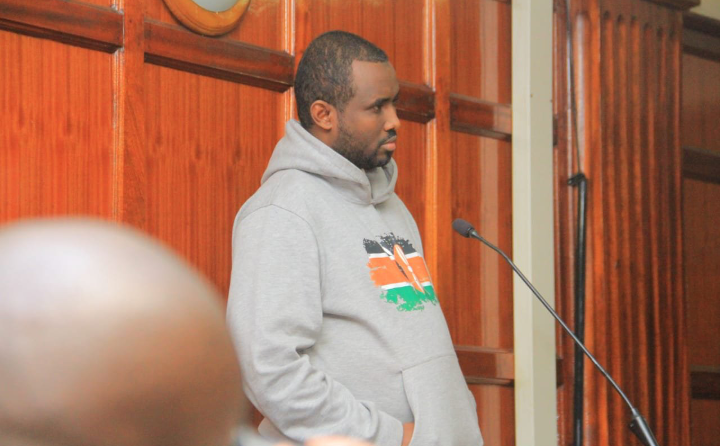In a case highlighting the complexities and risks within Kenya’s agricultural export industry, a businessman appeared in court facing multiple fraud charges.
Hussein Sheikh Abdullahi, the accused, stands charged with defrauding another businessman of Ksh 11.7 million under the pretense of facilitating his entry into the lucrative business of buying and exporting macadamia and cashew nuts.
The court proceedings, led by Milimani Chief Magistrate Lucas Onyina, underscored the severity of Abdullahi’s actions, which included obtaining the funds fraudulently, issuing bad cheques, and creating forged documents.
The case raises broader questions about the challenges in the industry, such as fraud and regulatory gaps, which can affect investor confidence, particularly for those seeking opportunities in Kenya’s agricultural sector.
According to the prosecution, Abdullahi is accused of deceiving Hassan Aden Bare, a fellow businessman, by promising to facilitate his involvement in the international macadamia and cashew nut trade.
This industry, driven by high global demand for Kenyan macadamia and cashew nuts, is attractive to investors but also vulnerable to fraud due to its intricate regulatory and logistical processes.
The prosecution claims that on September 26, 2024, Abdullahi convinced Bare to part with USD 90,000 (approximately Ksh 11.7 million) on the promise of assisting him in entering the export market.
Abdullahi allegedly had no intention or capability to fulfill these promises.
This initial charge was one of many leveled against Abdullahi, who faces a total of 20 separate counts.
Abdullahi’s case is not his first encounter with the law. The businessman has previously faced similar charges involving substantial sums.
In a previous case, he was accused of obtaining Ksh 3 million under false pretenses, similarly claiming he could aid another individual’s entry into the macadamia and cashew nut business.
This history of fraud led the prosecution to argue that Abdullahi is a habitual offender and presents a significant flight risk, a key point in their argument against granting him bail.
The prosecution’s affidavit highlighted Abdullahi’s pattern of behavior, alleging that he has a history of evading law enforcement.
According to the investigator’s statement, Abdullahi went into hiding when the latest charges were filed, forcing authorities to embark on an extensive search before his arrest in Nairobi’s Industrial Area.
The prosecution asserted that Abdullahi was likely to jump bail if released, citing past incidents where he had previously done so in cases pending in Kibera and Makadara.
Abdullahi, who denied all charges against him, requested leniency in setting bail. However, the prosecution’s firm stance, backed by their affidavit, made it clear they would oppose his release on bail.
They argued that his release could compromise the integrity of the judicial process given his alleged flight risk and history of evading authorities.
Chief Magistrate Onyina ordered Abdullahi’s defense team to submit an affidavit detailing the reasons why he should be granted bail.
The affidavit is due on Thursday, with both parties expected to present their arguments before the court makes a ruling on the bail application.
Beyond allegations of fraud, Abdullahi faces additional charges involving the issuance of bad cheques and forgery.
One of these charges includes issuing a bad cheque intended to fulfill financial obligations he purportedly couldn’t meet.
Forgery is a particularly troubling aspect of this case, with the prosecution asserting that Abdullahi created fake documents to support his schemes.
In one charge, he allegedly presented a document on October 24, 2023, claiming it was a valid certificate issued by the Kenya Agricultural and Livestock Research Organization (KALRO).
This document, purportedly confirming the quality and suitability of the macadamia nuts for export, was reportedly fabricated to deceive potential investors or partners in the agricultural industry.
Another document in question was a supposed laboratory test report, allegedly issued by Good Manufacturing Practice Services Limited.
The court heard that this document was similarly falsified to advance Abdullahi’s fraudulent schemes.
This case poses the challenges facing Kenya’s agricultural sector, which is highly dependent on exports of crops like coffee, tea, and increasingly, macadamia and cashew nuts.
Kenya has seen growing demand for these nuts globally, especially in markets like China and the United States.
However, the industry’s profitability has also made it a target for fraudsters, resulting in investor hesitation and regulatory scrutiny.
For investors and stakeholders, this case serves as a cautionary tale about the importance of due diligence and regulatory oversight in the industry.
Fraudulent activities like those Abdullahi is accused of not only harm individual investors but also undermine Kenya’s reputation as a trusted supplier in the global agricultural market.
The court will reconvene on October 31, 2024, when the defense team is expected to present its affidavit to counter the prosecution’s arguments against bail.
The ruling on bail will likely be a critical juncture in the case, determining whether Abdullahi remains in custody as the trial proceeds.
This case sheds light on both the opportunities and risks inherent in Kenya’s growing agricultural export sector.
As the judiciary continues to address fraud cases of this nature, there is hope that robust legal consequences will deter future fraud attempts, preserving Kenya’s position in the competitive global market for agricultural products.





















Add Comment